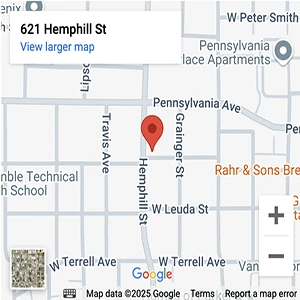The Risks of Vehicle Automation
PARIS, Texas. Very often we hear about how autonomous vehicles will remake the driving industry. The trucking industry will be revolutionized and people will someday be able to sleep in their cars on the way to work. Yet, as more cars are released with partial automation, experts are worried that these systems could potentially result in more harm done than good. Partial automation comes with risks. Consumer Reports recently reported on a car crash in Salt Lake City in which a driver with a partially autonomous vehicle took his hands off the wheel. The problem with partially autonomous technology is that drivers sometimes think it can do more for them than it was designed to do.
Partially autonomous vehicles, while quite powerful, are not designed to be 100% autonomous. They require a human driver behind the wheel. According to the National Highway Traffic Safety Administration, automated technology will increasingly become robust as the years go on, but right now, the systems are still in their early stages. Between 2016 and 2025 drivers can expect to see partially automated safety features, including lane-keeping assistance, adaptive cruise control, and even self-park. The National Highway Traffic Safety Administration notes that by 2025, we may see fully automated vehicles on the road. The path to full automation is one that will involve research and safety testing. When drivers rely too much on their cars, accidents can happen.
Consumer Reports notes that Tesla vehicles have been in the news lately when drivers relied too much on the car’s autonomous features. The fact of the matter is this: when drivers are not paying attention to the road, they are engaging in distracted driving, whether or not their vehicle has advanced driver assistance features.
According to Wired, companies that are working to make cars and trucks fully autonomous are not necessarily offering the futuristic promises they once did. In the wake of recent accidents, the public is all too aware of the complex challenges and testing that must be done before vehicles can be made fully autonomous. And yet, there are companies who are working to fast-track autonomous technology. Wired reports that one company, wants to put autonomous trucks on the road. The company claims that highway driving is simpler than city driving. The company imagines a system where trucks can stay on the highway the whole time, pulling over as “transfer hubs” when they need to load or unload goods. While highway driving is indeed more straightforward, there is good reason to pause before we push autonomous trucks onto America’s highways. After all, trucks carry far heavier loads and pose a far greater risk to other cars on the road due to their sheer weights.
At the end of the day, we are still likely years away before we see autonomous trucks on the road. Truck drivers and drivers of passenger vehicles have a responsibility to focus on the task at hand when they are behind the wheel. When they fail to do so, they are driving while distracted.
If you or a loved one was hurt by a distracted driver, you may have certain rights under the law. The Cooper Law Firm are Paris, Texas truck accident lawyers who assist clients when seeking damages for their injuries and losses after a crash. Our firm may be able to help you protect your rights. Visit us at https://cooper-law-firm.com/ to learn more.
Cooper Law Firm
501 N Third St,
Longview, TX 75601
Telephone: (903) 297-0037









